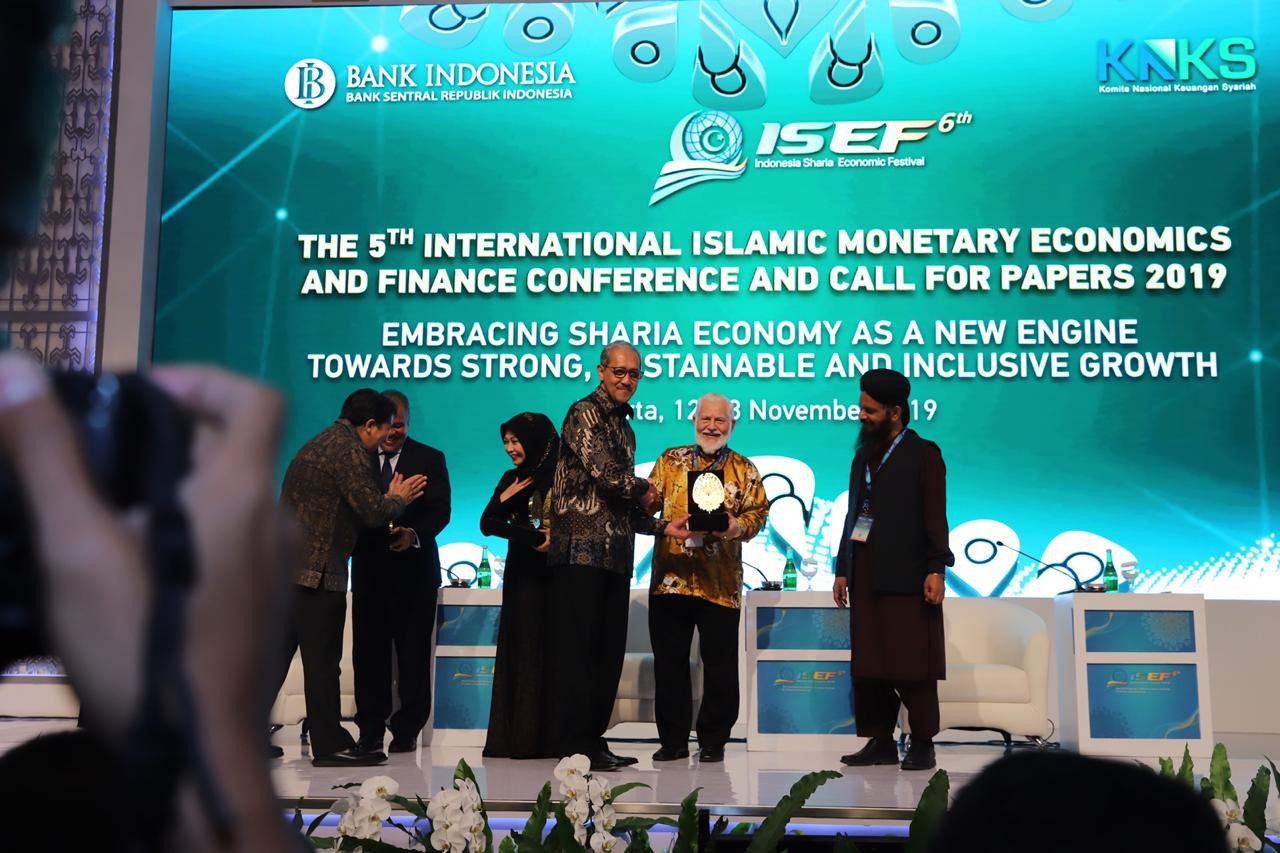Popular Reads
Top Results
Can't find what you're looking for?
View all search resultsPopular Reads
Top Results
Can't find what you're looking for?
View all search resultsSharia finance provides stability, promotes equality amid economic uncertainty, BI says
Growing pressures on global trade volumes due to trade tensions between the United States and China could widen inequality in the near future, BI Deputy Governor Dody Budi Waluyo said
Change text size
Gift Premium Articles
to Anyone
T
he sharia financial system can offer a solution for the economy amid global uncertainty and reduce inequality brought on by economic volatility, a Bank Indonesia (BI) official has said.
Growing pressures on global trade volumes due to trade tensions between the United States and China could widen inequality in the near future as they hinder economic growth, BI Deputy Governor Dody Budi Waluyo said during the International Islamic Monetary Economics and Finance Conference in Jakarta on Tuesday.
"There needs to be a solution. The world economic order needs […] to be fairer, to grow in proportion and sustainably [...] Furthermore, financial transactions must be based on real economic activities. These are among the principles of Islamic economics, business and finance," he said in his remarks.
"I [believe that] Islamic economics and finance are a possible solution for strengthening the economic structure and financial markets at present and in the future.”
In October, the International Monetary Fund (IMF) slashed its global growth projection for this year to just 3 percent, the lowest level since 2009 and down 0.3 percentage points from the April 2019 World Economic Outlook. While global growth is projected to pick up to 3.4 percent in 2020, that would still be 0.2 percentage points less than predicted in the April assessment.
It also projected world trade volume growth to reach 1.1 percent this year from 3.4 percent forecast in April amid untangled trade frictions between the two largest economies on the planet, the US and China.
To tackle these problems, Dody suggested the development of Islamic economics and finance as a possible solution as the system promotes risk-sharing and the integration of commercial and social finance, which are essential in ensuring economic resilience and inclusion.
“Islamic economics and finance are believed to contain values that lean toward greater justice in socioeconomic development, economic growth, sustainability and the people’s wellbeing,” he said.
Malaysian Deputy Finance Minister Dato' Wira Haji Amiruddin Haji Hamzah echoed his sentiments, saying that sharia economic principles had long called for the enhancement of people’s wellbeing through the preservation of wealth, faith and intellect. They could support the global economy’s resilience during uncertain times, he added.
The sharia finance system also shared links with the environmental, social and governance (ESG) criteria currently being promoted by regulators and policymakers all over the world as they seek to establish a more sustainable, stakeholder-focused and socially responsible financial system, he said.
“[It is up to] the financial industry to step forward and facilitate an orderly transition for households, businesses and governments to play their respective roles in ensuring a sustainable future,” he said.










